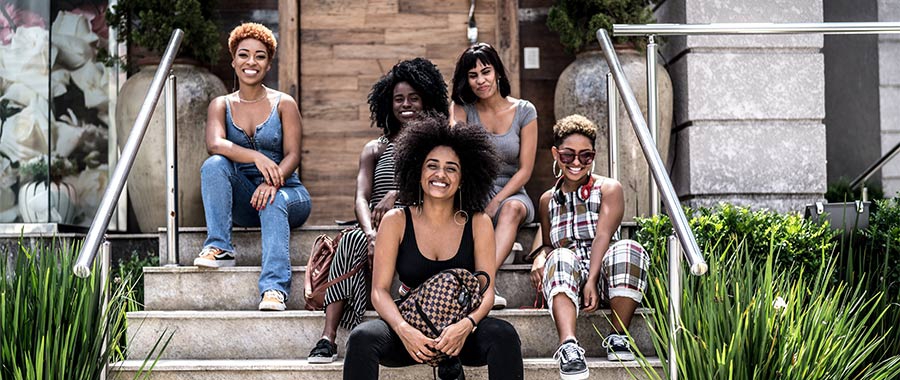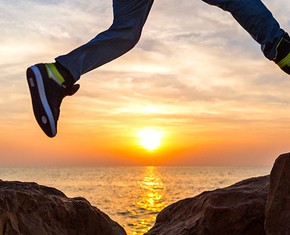The views expressed in our content reflect individual perspectives and do not represent the authoritative views of the Baha'i Faith.
Initially a term coined for medical rehabilitation, the concept of “self-care” has found its way into the world of care providers.
Within this world, self-care evolved into a crucial component of both the professional and personal maintenance of social workers, teachers, physicians, nurses, and a multitude of others. Many have come to recognize that addressing secondary trauma and avoiding compassion fatigue can help preserve the longevity of workers who regularly witness pain, degradation, and illness.
Injustice, such as the blatant health disparities seen between black women and their white counterparts, drew the idea of self-care to activists. Here self-care serves as a means for not only professional survival but also physical survival. Black activists realized the urgent need to bring health care opportunities to oppressed people, so they can live longer and healthier lives. Self-care referred to the process of developing resources for our own community, and then taking advantage of these resources to improve one’s own situation.
Eventually social justice activists realized the need to also take care of their own personal well-being, in addition to that of their community. For many self-care has become a radical declaration of their humanity. As a better understanding of mental health spreads through different pockets of our society, a holistic view of wellness is achieving greater appreciation. As suicide and psychological unrest persists, people increasingly realize that we have to build peace into our daily lives; we have to monitor our trauma.
Baha’is believe that individuals are interconnected with their wider contexts. This being said, since our society is clearly afflicted with what sometimes feels like an endless plethora of problems, it is no surprise that many people suffer at an individual level.
… this endless universe is like the human body, and … all its parts are connected one with another and are linked together in the utmost perfection. That is, in the same way that the parts, members and organs of the human body are interconnected, and that they mutually assist, reinforce and influence each other, so too are the parts and members of this endless universe connected with, and spiritually and materially influenced by, one another. – Abdu’l-Baha, Some Answered Questions, newly revised edition, p. 285.
As the term self-care has become popularized by less socioeconomically and racially oppressed peoples, capitalism has increasingly shaped the dialogue. Self-care has become associated with expensive facemasks, massages, and resort vacations. All of these things can, of course, help release stress—however, for those already largely unconcerned with issues of oppression or justice, this can further encourage a culture of indulgence. These habits of what claims to be self-care can also fall into the traps of over emphasizing standards of conventional attractiveness or false beliefs that happiness can be bought.
Our cultural norm of individualism also seems to shape the direction of conversations around self-care. Cancelling plans for the sake of self-care, avoiding hard conversations about the suffering of others, and an avoidance of working on one’s own shortcomings can mistakenly be accepted as a form of loving oneself.
While we do have limited time and energy for these things, it seems like sometimes we miss the mark. I had a conversation with a friend who was dating someone that regularly canceled plans and showed up late. His excuse? He said he was sorry but really needed to make sure he was taken care of. I remember at one point when we were discussing the issue we realized that he was so focused on his own wellness that he wasn’t thinking about how his actions might affect the well-being of others. He was so focused on self-care that he unintentionally hurt others.
A materialistic and individualistic view of self-care goes against not only what the Baha’i writings suggest, but also what many other faiths declare:
Blessed is he who preferreth his brother before himself. – Baha’u’llah, Tablets of Baha’u’llah, p. 71.
Worship Allah and associate nothing with Him, and to parents do good, and to relatives, orphans, the needy, the near neighbor, the neighbor farther away, the companion at your side, the traveler, and those whom your right hands possess. Indeed, Allah does not like those who are self-deluding and boastful. – The Holy Quran 4:36
Let each of you look not only to his own interests, but also to the interests of others. –Philippians 2:4
If we believe in the oneness of humankind, then how can we really internalize this idea that sometimes in order to care for ourselves, we have to care for others?
Self-care and community-care are perhaps more synonymous than most of us have come to realize. Maybe to find balance we have to re-conceptualize our understanding of ourselves as a small part of a larger whole. Maybe to increase happiness and longevity we need to start viewing ourselves as abundant creatures rather than limited by scarcity of energy or time:
My admonition and exhortation to you is this: Be kind to all people, love humanity, consider all mankind as your relations and servants of the most high God. Strive day and night that animosity and contention may pass away from the hearts of men, that all religions shall become reconciled and the nations love each other so that no racial, religious or political prejudice may remain and the world of humanity behold God as the beginning and end of all existence. God has created all, and all return to God. Therefore, love humanity with all your heart and soul. If you meet a poor man, assist him; if you see the sick, heal him; reassure the affrighted one, render the cowardly noble and courageous, educate the ignorant, associate with the stranger. Emulate God. Consider how kindly, how lovingly He deals with all, and follow His example. You must treat people in accordance with the divine precepts—in other words, treat them as kindly as God treats them, for this is the greatest attainment possible for the world of humanity. – Abdu’l-Baha, The Promulgation of Universal Peace, pp. 290-291.
















Comments
Sign in or create an account
Continue with Googleor